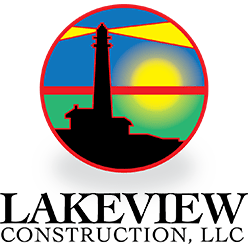Employee Stock Ownership Plans (ESOPs) are gaining traction among construction companies as a strategic choice for their business structures. With the construction industry’s unique demands for workforce retention, succession planning, and competitive performance, ESOPs present a valuable solution. Here, we discuss six key reasons why more construction firms are considering ESOPs for their business needs.
Enhanced Employee Retention and Recruitment
In the competitive construction industry, retaining skilled workers and attracting new talent can be quite challenging. ESOPs create a sense of ownership and belonging among employees, which significantly boosts their motivation and loyalty to the company.
When employees are part owners of the company they work for, they are more likely to stay with the company for a long time, reducing turnover rates. This structure not only helps keep valuable skills within the company but also makes the firm more attractive to prospective employees who are looking for employers who offer something beyond the standard wage package.
Maximizing Commercial Value
For construction companies, the strategy of maximizing commercial value is crucial, and ESOPs play a pivotal role in this process. By integrating employees as shareholders, companies foster a workforce that is even more invested in the company’s success. This alignment of interests enhances productivity and innovation, as each project’s success directly benefits the employee-owners.
Furthermore, ESOPs enhance the company’s ability to secure projects by showcasing a stable and committed workforce to potential clients who value consistency and dedication. The financial health of the company is often strengthened under an ESOP model, as reinvested employee dividends boost the company’s capital without the need to seek external funding sources.
Building a Competitive Edge With ESOP Construction Companies
Switching to an ESOP in construction companies conjures a specific image of resilience and forward-thinking in the construction sector. These firms are often viewed as more adaptive and resilient, drawing on the collective efforts and insights of all their employee-owners. This collaborative environment drives innovative solutions to both common and complex problems.
Also, because these companies are partially or wholly owned by employees, there is a natural inclination towards higher productivity and quality workmanship, which directly contributes to customer satisfaction and repeat business. ESOPs provide a framework for employees to not only share in profits but also in decision-making, which can lead to more effective management practices and project execution. This is a powerful advantage in a market where every efficiency and innovation can be a differentiator from the competition.
Financial Stability and Longevity
Adopting an ESOP structure can significantly contribute to the financial stability and longevity of a construction company. ESOPs often lead to improved financial performance due to the tax advantages they offer. For example, contributions used to repay a loan, dividends paid on ESOP shares, and profits attributed to employee ownership can all be tax-deductible.
These savings can then be more easily reinvested back into the firm, funding new projects, advanced equipment, or enhanced training programs. Also, ESOPs can act as a built-in retirement plan, providing employees with a stake in the company that grows over time, which not only secures their future but also stabilizes the company’s workforce by reducing the turnover rate.
Succession Planning
For many construction company owners, finding a viable exit strategy that ensures the continuity of their business while preserving their legacy is a significant concern. ESOPs present a practical solution for succession planning.
They allow owners to gradually transition control of the business to the employees who understand it best, rather than selling to an external buyer who may prioritize profit over people. This gradual transfer of ownership ensures that the business remains in the hands of those who are committed to its success and are familiar with the company’s values, clients, and projects, thus maintaining continuity and operational integrity.
Positive Company Culture and Employee Well-Being
Finally, ESOPs contribute to a positive company culture and enhance employee well-being. By fostering an environment where employees are owners, there is a stronger communal spirit, a shared purpose, and a collective responsibility for success. This ownership mentality boosts morale and encourages a more supportive and collaborative workplace.
Employees are more likely to support each other and work together towards common goals, knowing that everyone will benefit from the company’s success. In addition, ESOPs provide employees with financial security and a tangible connection to their work, enhancing job satisfaction and personal investment in the company’s outcomes.











 The 2024 virtual Men’s Round Table will be held Q4, 2024, date TBD.
The 2024 virtual Men’s Round Table will be held Q4, 2024, date TBD.













